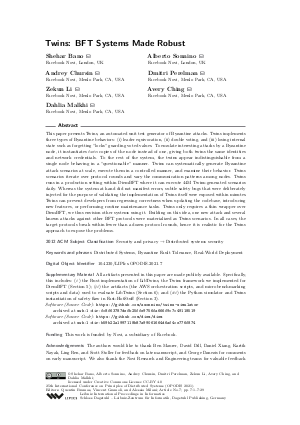LIPIcs.OPODIS.2021.7.pdf
- Filesize: 0.99 MB
- 29 pages

 Creative Commons Attribution 4.0 International license
Creative Commons Attribution 4.0 International license


























Feedback for Dagstuhl Publishing